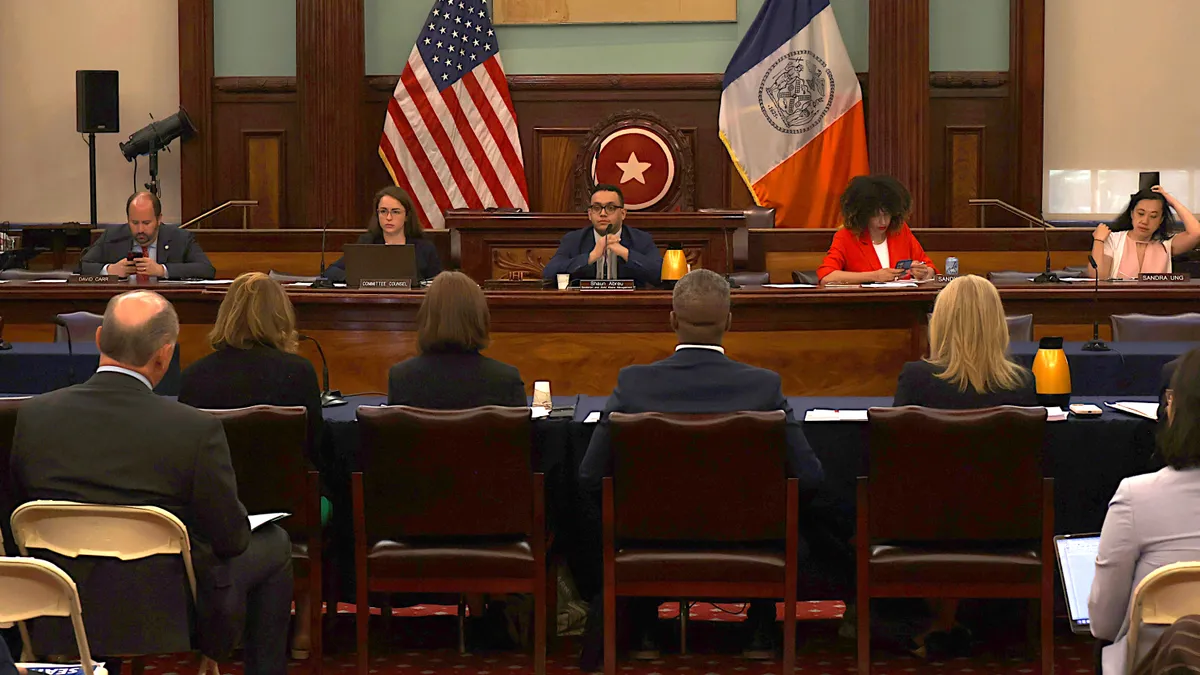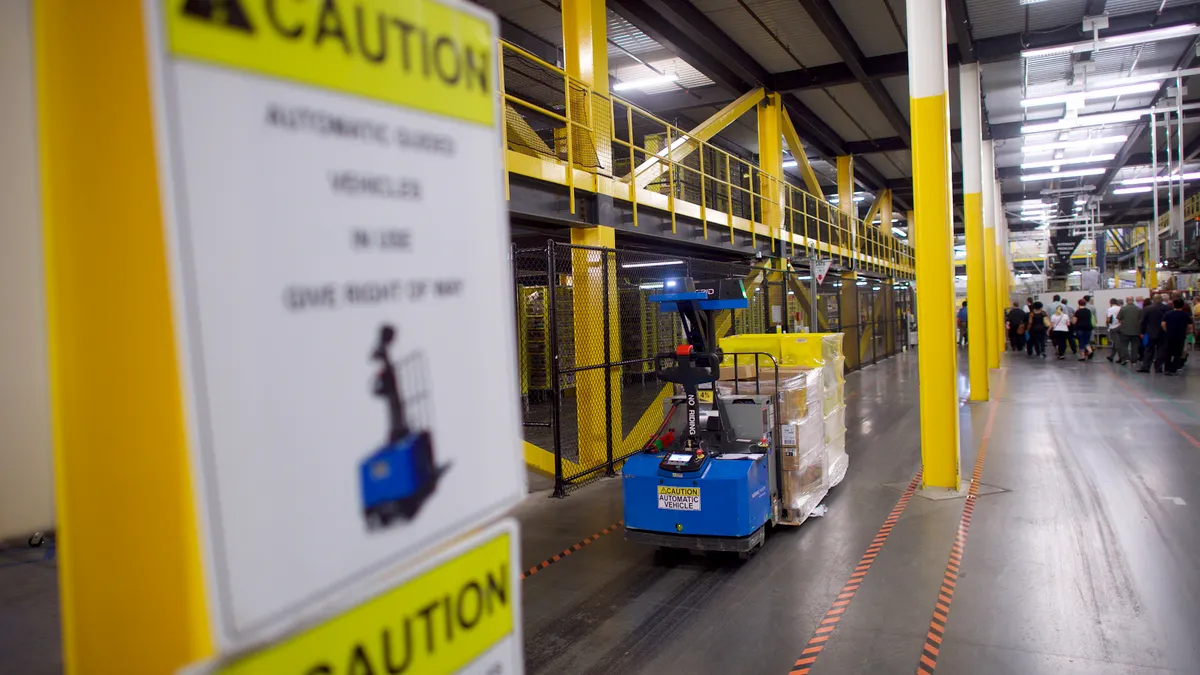Misperceptions about older workers' skills and proficiencies abound, especially in technology fields, research has shown.
And amid the COVID-19 pandemic, telework policies, which incorporate the use of technology, can draw particular attention to generational differences, according to Carla Bevins, assistant teaching professor of business communications at Carnegie Mellon University's Tepper School of Business.
"It is clear that technological advances such as data analytics and social media have affected work culture and have also influenced how we work in all parts of an organization," Bevins told HR Dive in an email. But ageism existed in the workplace prior to technological disruption, she said.
Age bias in tech
The Age Discrimination in Employment Act (ADEA) of 1967 was created to prohibit employment discrimination based on age against an individual 40 years of age or older, according to U.S. Equal Employment Opportunity Commission (EEOC) guidance. It's unlawful for an employer to discriminate on the basis of age in hiring, promotion, compensation, discharge, or terms, conditions or privileges of employment, according to EEOC. Despite the federal law, a December 2019 report by AARP found ageism in the workplace is widespread and often considered the "last acceptable bias."
Tech firms, in particular, "have perpetuated the ageism bias, and this is disadvantageous to both companies and employees," Bevins said. "There is often a fixed mindset surrounding the roles older and younger employees take on the skill sets they have."
Millennials are often perceived as having more technical skills and they receive a greater share of promotions than baby boomers, according to a 2019 report by Visier, a people analytics firm. The average age for tech workers is 38, the report stated, compared to age 43 for non-tech workers. And, the average age of tech-industry managers is 42,compared to age 47 for non-tech managers.
However, older employees possess soft skills that will lead to success in telework, Bevins said. "When talking with recruiters, I hear time and time again that they are looking for employees who are critical thinkers, have strong communication skills and are creative problem-solvers," she said. "When mature workers are able to effectively use technology in their work, their well-developed soft skills — I argue they are essential skills — translate to strong work production in online environments."
Training is key
Training and counseling both supervisors and employees on policies is an important part of removing age-discrimination from the workplace and enforcing a culture of equal opportunity. But research has shown there's a need for improvement in that area.
A 2019 Hiscox Ageism in the Workplace study found that almost two-thirds of the 400 full-time U.S. workers surveyed said they did not receive age discrimination training in the past year. To detect age discrimination, Hiscox recommended that employers watch for older workers being underrepresented in new hiring and promotions; disproportionately affected by job layoffs; and harassed or excluded from projects or teams.
Some companies, like Randstad, a recruitment and HR solutions firm, are attempting a proactive approach. All team members receive compliance training on laws against discrimination, Floss Aggrey, vice president of diversity and Inclusion at Randstad Sourceright, told HR Dive in a phone interview. "In the midst of fighting stereotypes," the company also offers webinars and training on conscious inclusion, and practices "allyship based on protected categories including age, ability or ethnicity and gender diversity," she said.
Upskilling and reskilling
In the transition to remote work environments, upskilling and reskilling will become more important and can counteract ageism, Bevins said.
"As companies adapt to life under COVID-19, providing training to employees so they can improve their current performance in a new environment is essential," she said. "Once companies have a better idea of how they will move forward, reskilling becomes strongly relevant. Where positions become obsolete, new training in technology, like web design, can help employees with transferable skills maintain their positions within the company and provide valuable input."
Mentoring and networking can be beneficial for both employees and the company, Bevins said. "While mentoring can help mature professionals gain experience as leaders and trainers, reverse mentoring can lead to positive changes to a company culture through younger employees teaching new tech skills and innovation," she said.
Leveling the playing field
There are qualities or skill sets companies should look for when recruiting employees to level the playing field for all generations, according to Bevins.
"Open, clear communication is an essential skill, not just a soft skill," she said. "When you are able to connect effectively with colleagues and customers, then technology serves to bolster these relationships."
Bevins also recommended embracing age as an asset. "When you have multiple generations working together in the workforce, as we do now, you have a competitive advantage where each age group brings unique perspectives, critical thinking skills, experiences, and ideas to the table," she said.
Life-long learning should also be encouraged, Bevins said. "When employees have the opportunity to take advantage of learning new skills or refreshing existing skills, they can gain skills, regardless of age, they can counter ideas that they are less tech-savvy, can adapt to an ever-changing work environment, and can help them move up within the company," she said.






















